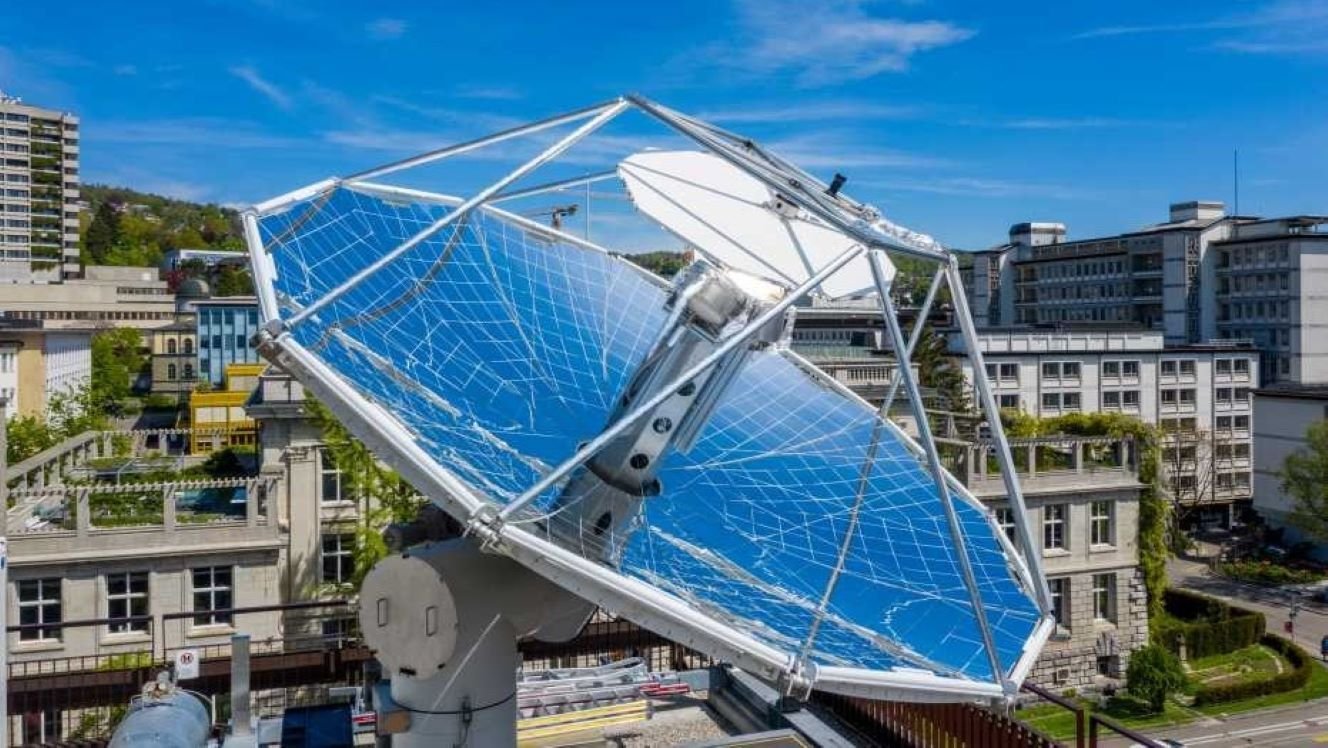
Case Study
In this study we examine the impact of integrating a fleet of Enoda PRIME® Exchangers (“Prime Exchangers”) coordinated by Enoda ENSEMBLE™ into the Texas grid through the Business As Usual (“BAU”) case.
BAU operation of around 25,000 400kVA Prime Exchangers can allow for reduction of up to 3,855.8 tonnes of CO2 in the Regulation-Up market (“RegUp”) on June 21st, 2023. This fleet of 25,000 devices would have been sufficient on this day to completely saturate the regulation up market.
Such a fleet would have reduced carbon emissions of just one of the frequency and ancillary services, RegUp, by 54%, and would also enable Texans to benefit from Enoda’s ability to provide these services at lowest marginal cost.

Unpicking the Energy Trilemma
For the energy transition to succeed, it must deliver an energy system that is clean, affordable and secure. For many years, the challenge of meeting these goals has been described as a trilemma.

The Hidden Costs of Delivered Renewable Energy
Renewable energy has become a crucial component of the global energy transition. LCOE has been instrumental in assessing the competitiveness of renewable energy technologies, but it fails to capture the full picture of costs associated with their integration into the grid.

Platform Series - Monolithic Market Makers to Automated Trading Platforms
The history of stock markets spans centuries, evolving from rudimentary systems to the sophisticated networks seen today.

McKinsey’s Green Business Building Conference
Forthcoming McKinsey research shows that while 90% of emissions reductions required for net zero are possible with existing technologies, only 20% of that abatement is from technologies that are commercially mature. The conference was filled with examples that demonstrate this innovation happening.

The Future of Distributed Flexibility
This year, Ofgem released a Call for Input (CfI) on the Future of Distributed Flexibility. Ofgem begins by introducing some of the issues which are resulting in a lower uptake of distributed flexibility on the electricity system than there ought to be.

Exactly What are Balancing Costs?
The electrical grid is a marvel of engineering that delivers electricity to our homes and businesses, but it requires a delicate balancing act to maintain a consistent supply of electricity to end consumers.

The Blind Gridmaker
The electrical grid is an impressive feat of human engineering that has evolved over time to become the most important infrastructure of modern society. From its humble beginnings as a simple network of wires and generators, the grid has grown and adapted to meet the ever-increasing demands of our energy-hungry civilisation.

More Please…
Increasing renewable energy generation does not mean lower prices for the end consumer, despite there being zero fuel-costs. Why is this the case and what needs to happen to change this?

Platform Series - Multi-sided markets: theoretical foundations
The description of multi-sided markets has fundamentally changed the way that economists think about the boundaries of the firm. It also has dramatic implications for how entrepreneurs approach the problem of maximising firm value, as they now have to consider other product-market participants.

EU Market Design: setting the direction for Europe's electricity decarbonisation
Since the energy price spikes and volatility in electricity markets last year, precipitated by rising wholesale gas prices, the EU Commission has looked to a reform of market design as a systematic answer to the impact of these prices on Europeans.

Shell Energy Security Scenarios show grid technology innovation is needed to meet the long-term challenges of energy security and climate change
Response to Shell Energy Security Scenarios and meeting the long-term challenge of climate change

How can Europe capitalise on the smart technology on the grid to guarantee decarbonisation?
Last month was European Sustainability Week, which focussed on the theme ‘Going Green and Digital for Europe’s Energy Transition’. With the continuation of the conflict in Ukraine threatening the continent’s energy supply, and a commitment to decarbonisation by 2050, Europe is devoting significant attention to ensuring energy security. Despite the immediate nature of this winter’s gas crisis, however, the theme of the week demonstrated that Europe sees an opportunity to accelerate the long-term transition to clean, reliable, affordable energy.

The Review of Electricity Market Arrangements (REMA) Consultation and ENODA’s Response
ENODA’s response in full to the review of Electricity Market Arrangements consultation. We have largely focussed on areas we believe need to be amended in order to take full advantage of new, effective technologies like Enoda’s Prime. For this reason, we have focussed on those sections which look at balancing and ancillary services markets and given no opinion on questions of investment in or acceleration of low-carbon generation.

How Enoda’s technology can help address Greenhouse Gas Scope 1, 2 and 3 emissions
Enoda’s HERA® technology can help to drive down Scope 1, 2 and 3 emissions across industries, including the difficult loads identified above; therefore, the technology is capable of truly driving Net Zero outcomes in our lifetime.

What happened to the UK’s electricity balancing markets during Covid restrictions?
A legacy grid design, to be simultaneously reliable, affordable, and sustainable, requires solutions from first principles innovation to be fit for purpose in a Net Zero future. The total value of the Balancing Markets more than doubled during the 2019-2021 period

The challenges on our energy security with the expansion of renewables and its implications for battery supply chain
As renewable energy targets are brought forward to lessen dependence on Putin’s pipelines, consideration must also be made for holes in our domestic energy security, and how we can design a system that maintains stability and energy security while still delivering energy that is affordable and green. Increasingly batteries are being used not only for EVs, but to stabilise the grid itself.

Russia will dominate energy security until the grid is fit for renewables
Coal is political and environmentally untenable. Nuclear is politically unpalatable in many places, unaffordable, and following Russia’s attack on the Zaporizhzhia, Europe's largest nuclear plant, an unacceptable security risk. The inflexibility of nuclear power station output also makes nuclear difficult to integrate with the variable demand of electric vehicles. I worry that many countries will sacrifice their climate goals to achieve security through a system that combines electrification of transport and coal-fired power. We do not have to do this.

Energy regulators seem to expect Christmas all year
Across the world, the public have been promised that they will be able to benefit from the falling price of renewable energy, but they have been misled. Regulators and politicians acted with the best possible motives as they sought to provide cheap and green energy, but many people failed to understand the true underlying dynamics of a system dominated by renewable energy. In moving from a system where supply could easily adjust to follow demand to one where supply would be driven by the weather, policymakers appear not to have properly accounted for the value of the stability services provided by thermal generation, nor the cost of provisioning stability for a system based on renewables.

COP26 winners and why the most important recent climate success wasn’t in Glasgow
A week on from the close of festivities in Glasgow, I want to look at some of the winners and losers and why COP26 may not have been the most important thing that happened to the climate this autumn.

Why dynamic harmonisation of energy systems is the key to the next phase of decarbonisation
Electrification with renewables will be the primary mode of the energy transition, and its weaknesses are causing the transition to stall. It’s time to discover dynamic harmonisation, the means by which we can optimally integrate multiple modes of energy and the work that it powers.

